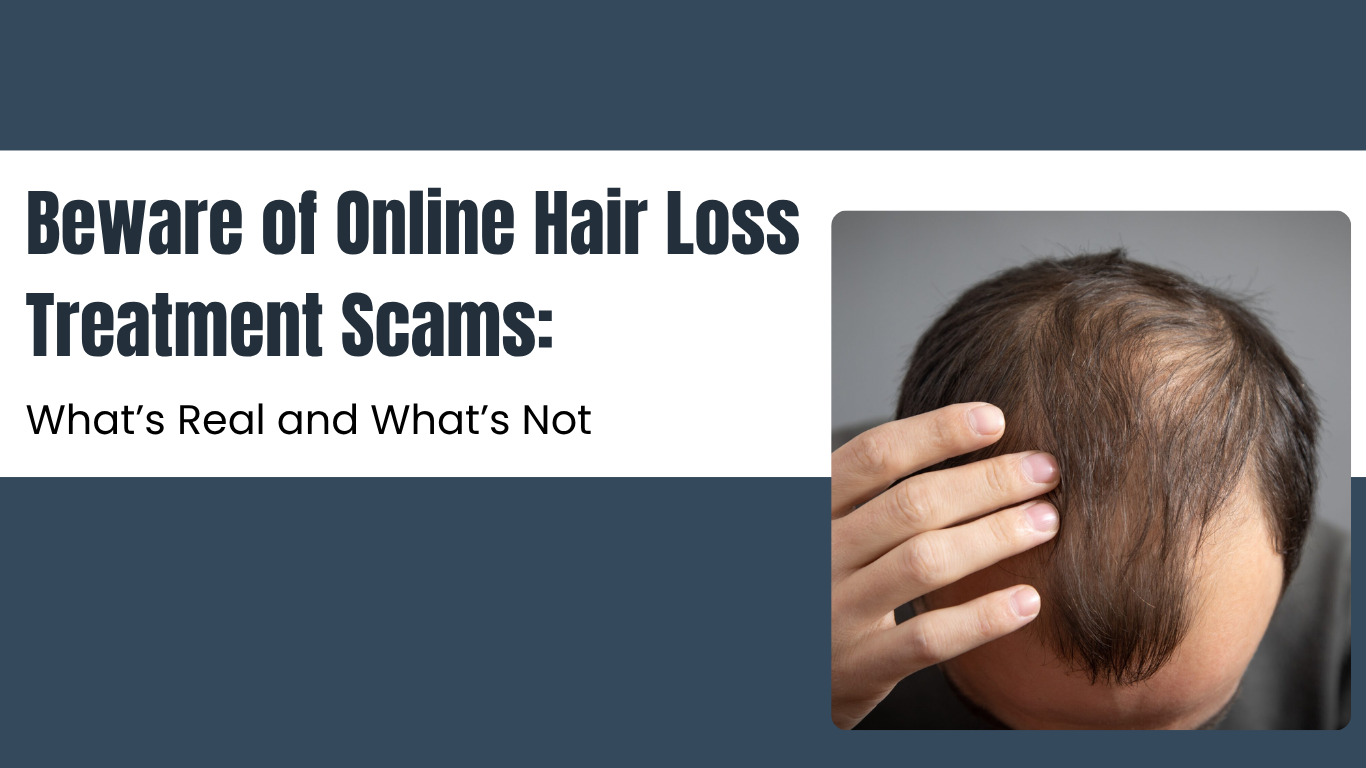
The internet is full of promises about quick fixes for hair loss. “Instant regrowth.” “Guaranteed results.” “Miracle cure.” These phrases sound hopeful, but they’re warning signs.
Hair loss is a gradual process, and real recovery takes time, science, and medical expertise. Unfortunately, online scams exploit people’s frustration and desperation for results.
This article explains how to recognise hair loss treatment scams, what genuine treatments look like, and how to protect yourself from being misled.
Online hair loss scams come in many forms. They may advertise pills, oils, or devices that promise to “reverse baldness” or “regrow hair overnight.” While the packaging may look convincing, most of these products have no scientific evidence behind them.
Falling for a scam can do more harm than simply wasting money. Unregulated products may cause allergic reactions, scalp irritation, or even permanent hair damage.
More importantly, scams delay proper treatment. By the time patients realise they’ve been misled, their hair loss may have progressed beyond the point where simple measures can help.
Hair restoration is a medical field, not a marketing trend. Genuine treatments, such as minoxidil, finasteride, or PRP therapy, are based on scientific research, medical guidance, and consistent follow-up care.
For those considering surgery, CQC-registered clinics like Haris Hair Transplant provide treatments performed by a qualified surgeon under medical supervision, offering both safety and transparency.
A: Not all are scams, but many are misleading. Always verify the product’s evidence and consult a medical expert before use.
A: In the UK, legitimate clinics are registered with the CQC and employ qualified medical professionals. Haris Hair Transplant meets these standards, offering medically approved treatments in a clinical setting.
A: Scammers exploit public trust by using celebrity endorsements, often without permission. Always verify such claims through official sources.
A: Yes. Some contain harsh chemicals or steroids that can cause irritation, infection, or permanent follicle damage.
A: Stop using the product immediately, report the seller to Action Fraud, and consult a medical professional to assess any damage.
Online hair loss treatment scams prey on hope, but knowledge is the best protection. Real results come from science, not sales tactics.
If you’re considering treatment, always look for medical evidence, transparent pricing, and qualified care. Clinics like Haris Hair Transplant focus on patient safety, ethical practice, and proven results, not promises.
Your hair deserves medical expertise, not marketing tricks. Stay informed. Stay cautious. Choose treatments that are real, safe, and scientifically sound.